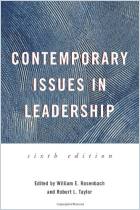Melden Sie sich bei getAbstract an, um die Zusammenfassung zu erhalten.

Melden Sie sich bei getAbstract an, um die Zusammenfassung zu erhalten.
Laura Empson
Leading Professionals
Power, Politics, and Prima Donnas
Oxford UP, 2017
Was ist drin?
Leading a professional services firm or a complex organization will challenge your leadership skills.
Recommendation
Professor Laura Empson of London’s Cass Business School and Harvard Law School reports on intensive research into how to lead professional firms, like law offices, and complex organizations, like hospitals and universities. Her scholarly work, packed with citations, details how leadership functions in a professional services environment. This layered study includes findings from interviews with 500 professionals in 16 countries. Professionals who hold or want leadership positions and academics who study professional firm operations will appreciate Empson’s exemplary text.
Summary
About the Author
Laura Empson directs the Centre for Professional Service Firms at Cass Business School in London and is a senior research fellow at Harvard Law School’s Center on the Legal Profession.



















Comment on this summary